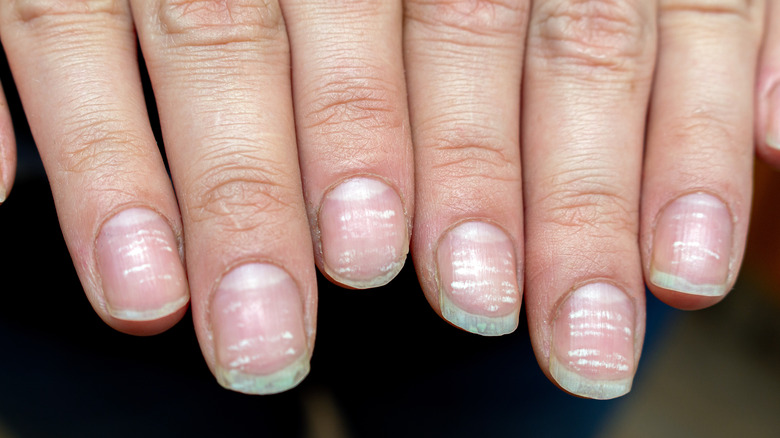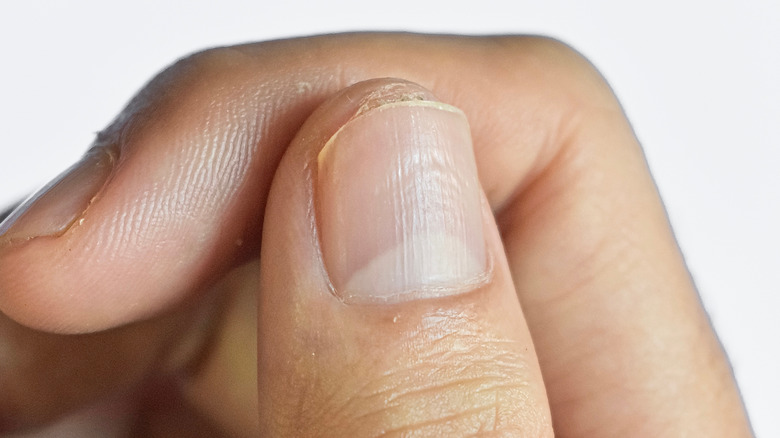The Truth About 'Covid Nails'
If you're unsure of whether or not you contracted COVID-19, you may have had unusual symptoms that could give you clues. For instance, the CDC has listed "loss of taste or smell" as a symptom of the virus. Many people who had COVID-19 have also reported strange frostbite-like patches on their toes, aka COVID toes (via the American Academy of Dermatology), or white patches on the tongue (via COVID Symptom Study).
Now there's COVID nails. According to Healthline, COVID nails are characterized by deep, horizontal lines and grooves in the fingernails. These grooves are also called Beau's lines, and they have been a known condition long before COVID-19. Skinsight states that these lines form when nail keratin synthesis abruptly stops during a short period, then continues. The condition usually occurs in people who have contracted a virus or who have an illness, per The Washington Post. Those who have experienced metabolic or inflammatory changes may develop Beau's lines as well.
Be cautious about a self-diagnosis of COVID nails
If you have developed so-called "COVID nails," don't be too concerned. The Washington Post reports that they have no lasting effects and will grow out eventually. You might also be able to estimate when you experienced an infection or bodily trauma based on where the grooves are in your nails. If they are close to your cuticles, the event probably occurred at least one month ago.
While COVID nails may very well be a sign that you had COVID-19, it's important not to put all your faith in a self-diagnosis. Experts reporting for The Washington Post recommend that you talk to your doctor and get a COVID-19 test to be sure. If you think the virus is not active, you will need to get an antibody or serology test, per the CDC. Both types of tests should detect antibodies in your blood, which your body produces after you have been infected. Unfortunately, an antibody test will not tell you much if you have already received the COVID-19 vaccine. In this case, you may test positive for the virus because your immune system produced antibodies in response to the vaccine, via Good Rx.
Note that a negative test result does not necessarily mean you didn't have the virus. According to the MD Anderson Cancer Center, it takes one to three weeks for your body to produce enough antibodies to a detectable level. Antibody levels may decrease below the detectable level after a few months.

